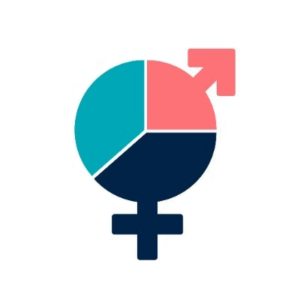
The number of women-led companies rose in 2022 according to The Gender Index, an annual large-scale UK-wide study into female entrepreneurship powered by data analytics platform mnAI. This year’s data reveals continued progress in women setting up businesses, with 17.3% of all UK companies now headed by women, up by 0.5% from 16.8% the previous year.
An added layer that the mnAI analysts have incorporated into this year’s data is identifying company leadership among under-represented groups and young people.
Ethnic minority-led companies have higher female representation in leadership roles, at 19.3% in 2022/23 (similar to 19.2% last year). The report also reveals that the proportion of women-led companies is higher in the younger age groups of Gen Z and millennials, with a national average of 21.7% active women-led companies in these age groups, 25% above the average.
The devolved nations showed that they are competitive with their UK counterparts. In 2022/23, Wales had the highest rate of women-led fast-growth companies across all UK devolved nations and regions, rising to 12.1% from 11.9% in 2021-22. Equally, no other UK nation has a higher proportion of women business owners (either solely or in a mixed-gender team) than Wales – a total of 34.6%.
For the second successive year, The Gender Index has shown an increase in the number of women across the four nations that are setting up companies, which is a further step in the right direction in boosting female entrepreneurship across the UK. More young women and ethnic minorities are raising external capital and running female-led companies than ever before, reflecting our belief that everyone regardless of age, race or gender should not face barriers to starting a business.
We recognise that while inspirational women are accessing external capital and leading fast-growth companies, we will not rest until every female-led company can do the same. To that end, The Gender Index is an accessible and informative tool that offers an unparalleled view of the progress and challenges that female-led companies face today.
We want The Gender Index to be used by policymakers, local and national government, corporates, researchers, investors, educators and female entrepreneurs to move the needle and support a more diverse economy.
Jill Pay, Chairman of The Gender Index

The picture in the cities and regions is one of a North-South divide where external funding and women-led companies are predominately in the South East. For the second consecutive year, London has the highest proportion of female-led companies (18.6%) and outstripped other regions securing 31.4% and 32.7% of total funding over the two years, followed by the South East at 15.3% and 13.6% respectively.
Of all active UK women-led companies, less than a quarter (23.4%) accessed external capital across the UK in 2022/23, and male-led companies secured seven times more finance, averaging 70% of the total over the two-year period.
The ethos behind The Gender Index is our firm belief that data can drive positive change for women in enterprise to identify challenges and opportunities and stimulate the growth of female-led companies.
“We strive for diversity and have widened the net this year to also focus on ethnic minority female-led companies and the most represented and under-represented generations in entrepreneurship. From our analysis, it is heartening to see Generation Z female founders closing the gender gap.
“This research also highlights the ongoing challenges for female-led companies accessing external capital. While it is clear from our data that there is still a long way to go, we look forward to seeing what other trends emerge over the coming year as we continue to push for positive change through data.
John Cushing, CEO of mnAi
